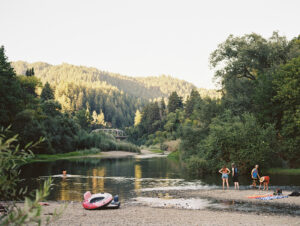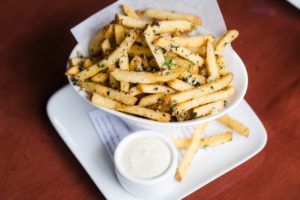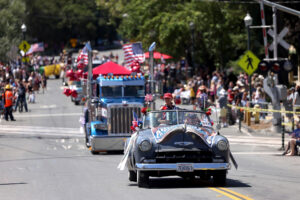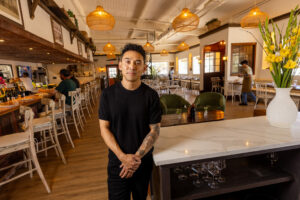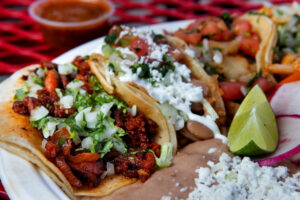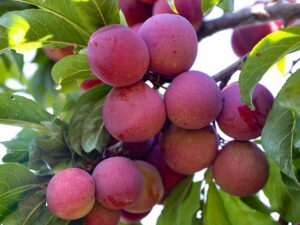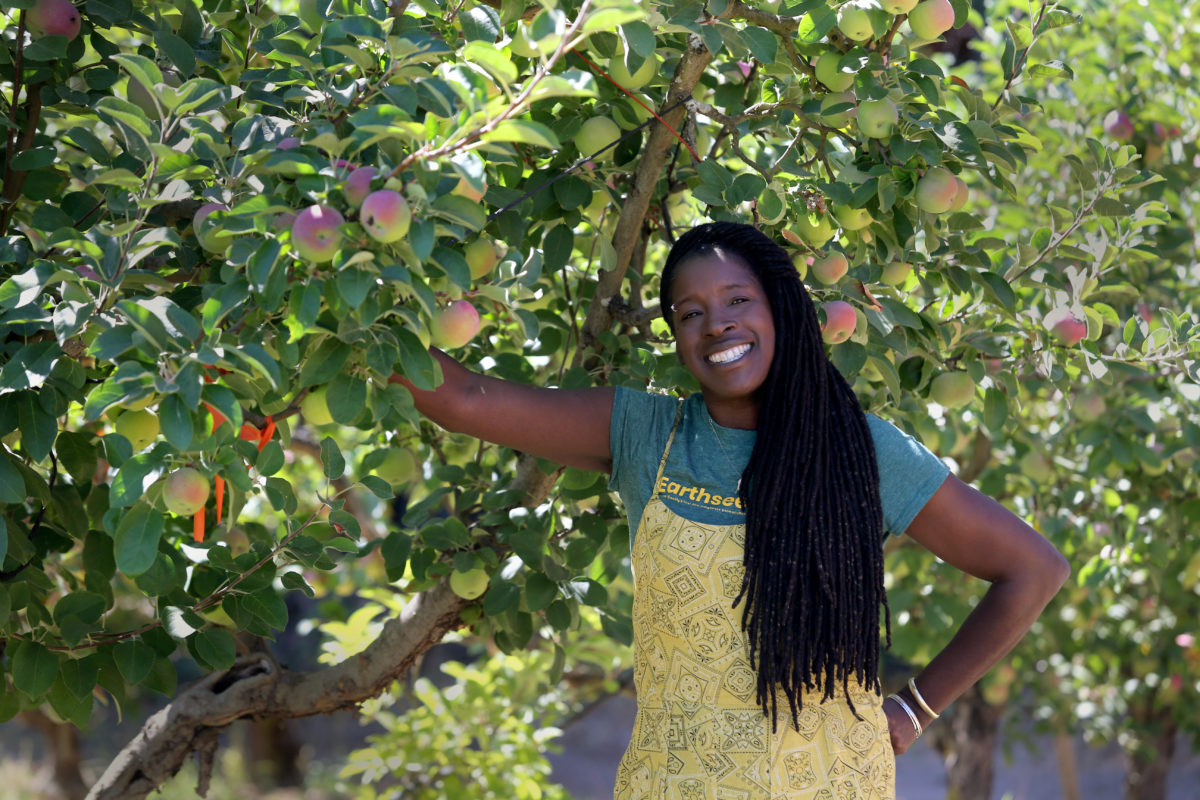In a county celebrated for its agriculture, just 2% of Sonoma’s farmland is Black-owned. But when Pandora Thomas first stepped onto Gabriel Farm, a piece of land for sale outside Sebastopol, she thought to herself, “This place is calling me.”
Not long after, in March of 2021, with support from a wide circle of collaborators and private donors, Thomas purchased the 14-acre property and founded EARTHseed, California’s first Afro-Indigenous permaculture farm. EARTHseed is teeming with life. There are over 4,000 fruit trees — apple, plum, persimmon — plus raspberries, native and medicinal plants, insects, and more than a few gophers. The farm is a place to practice and teach African agricultural skills that have endured and evolved despite centuries of slavery and diaspora.
“It’s really a reclaiming of those ways,” Thomas says. EARTHseed’s ethos is grounded in the West African principle of sankofa — which means, in Thomas’ words, “We must know where we came from in order to move forward.”
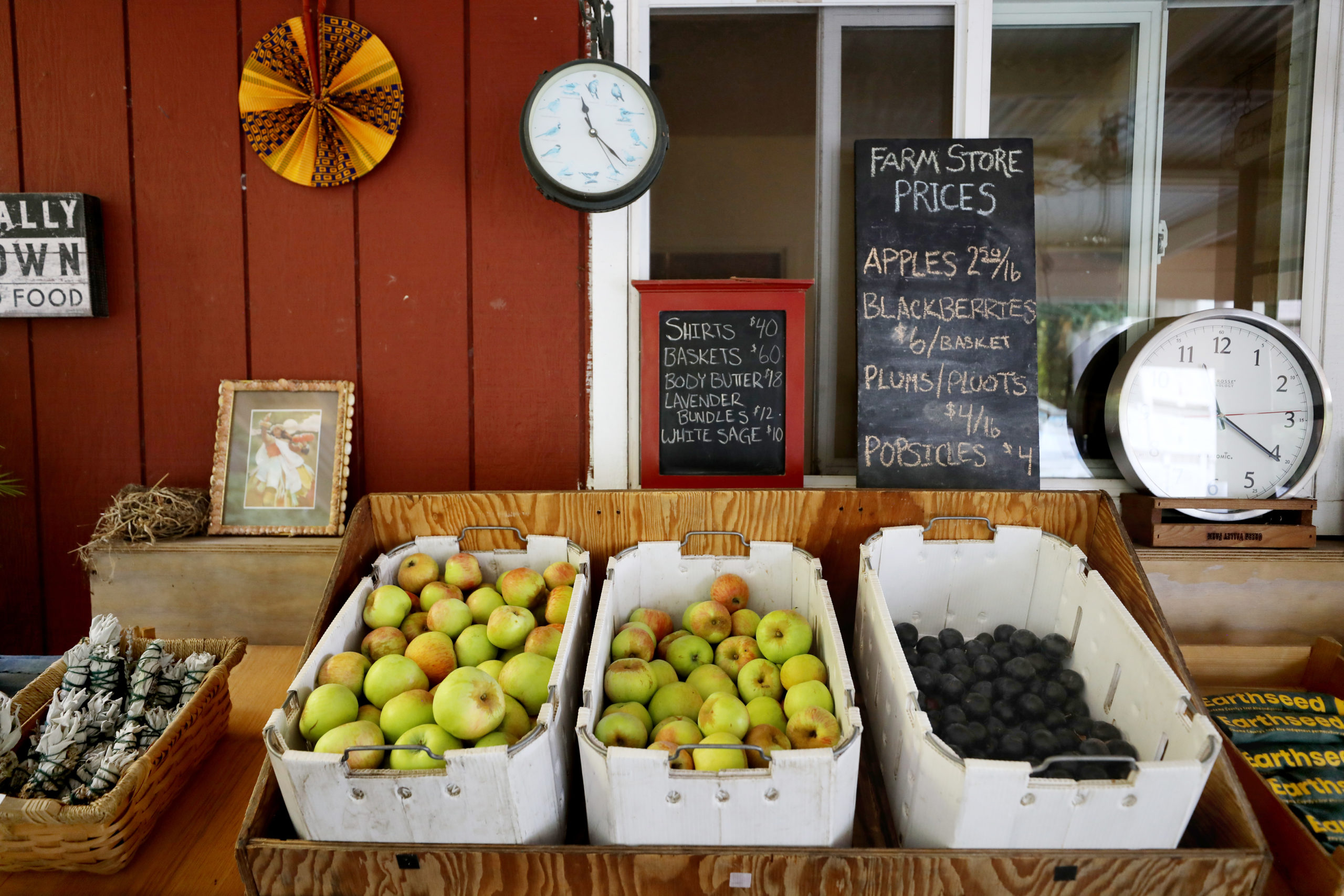
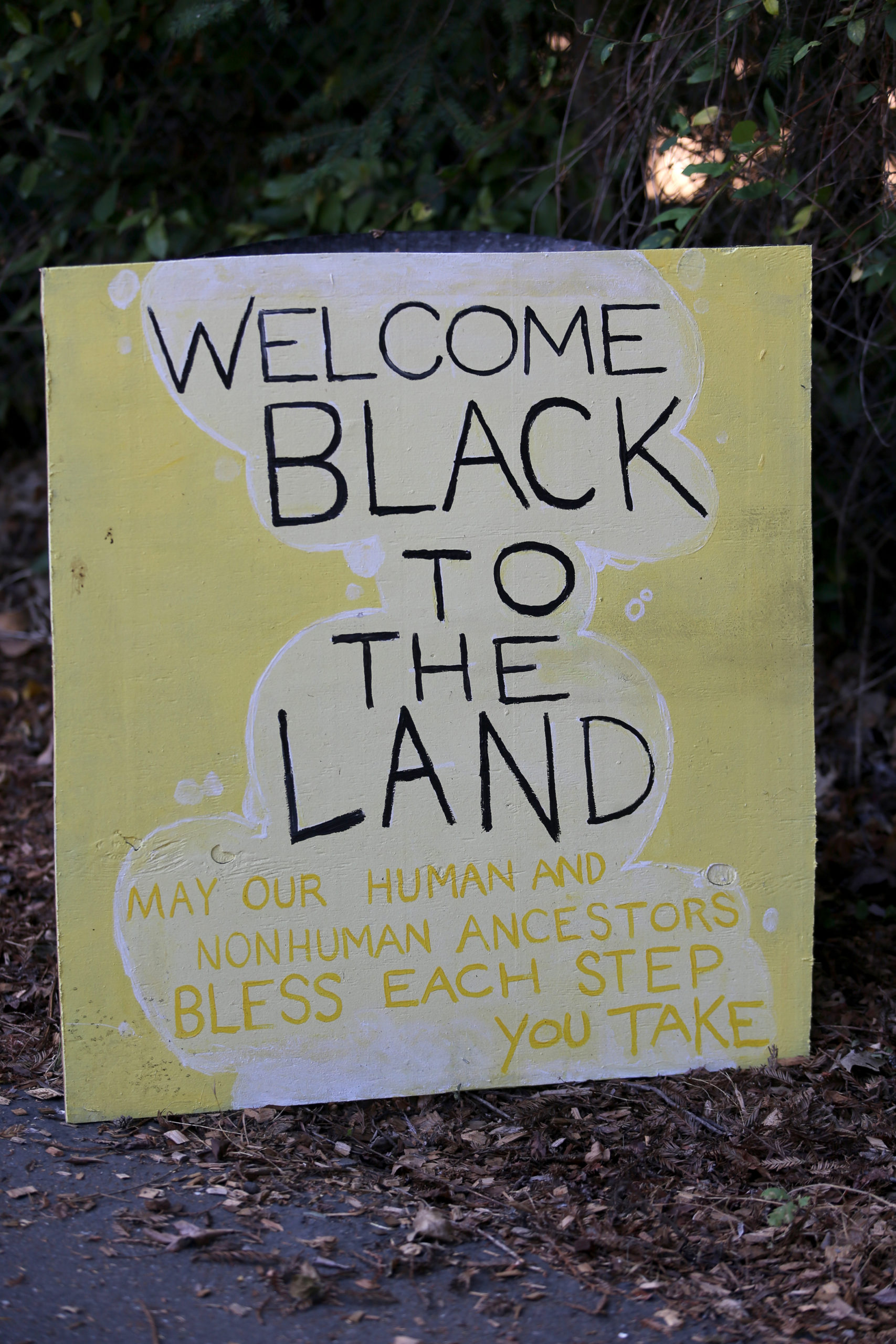
Thomas is a designer, community-builder, and permaculture teacher with a deep love for Sonoma County. Permaculture, as she puts it, is “an ecological design system rooted in Indigenous wisdom that elevates ecosystem health while meeting human needs.” It’s an approach that fosters resilience by working with natural systems, rather than imposing a structure from the outside. In a place like Northern California, already strained by drought and wildfire, practitioners believe it’s an essential tool in climate change adaptation. That’s part of why EARTHseed is partnering with Indigenous land stewards whose knowledge of this place runs deep.
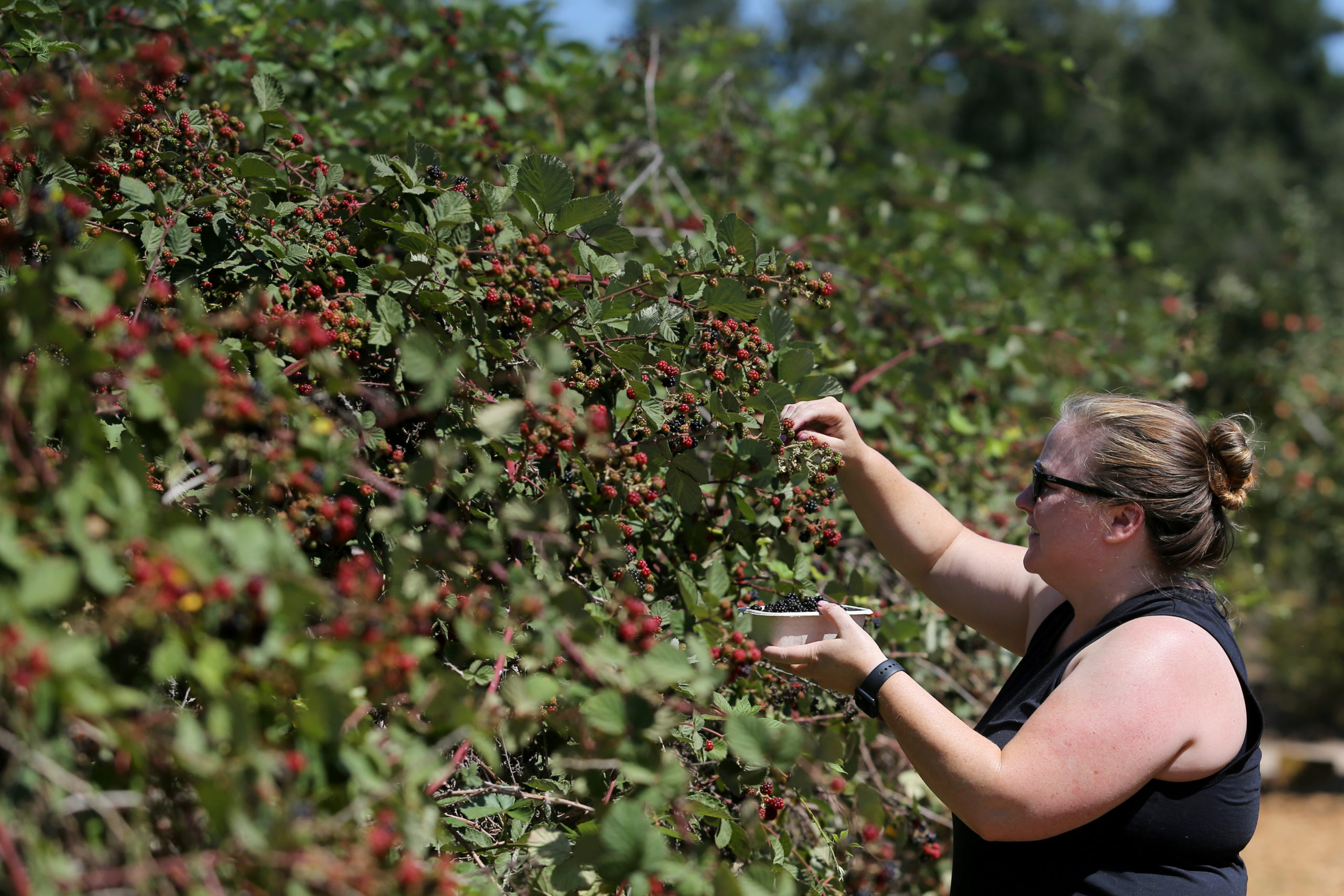
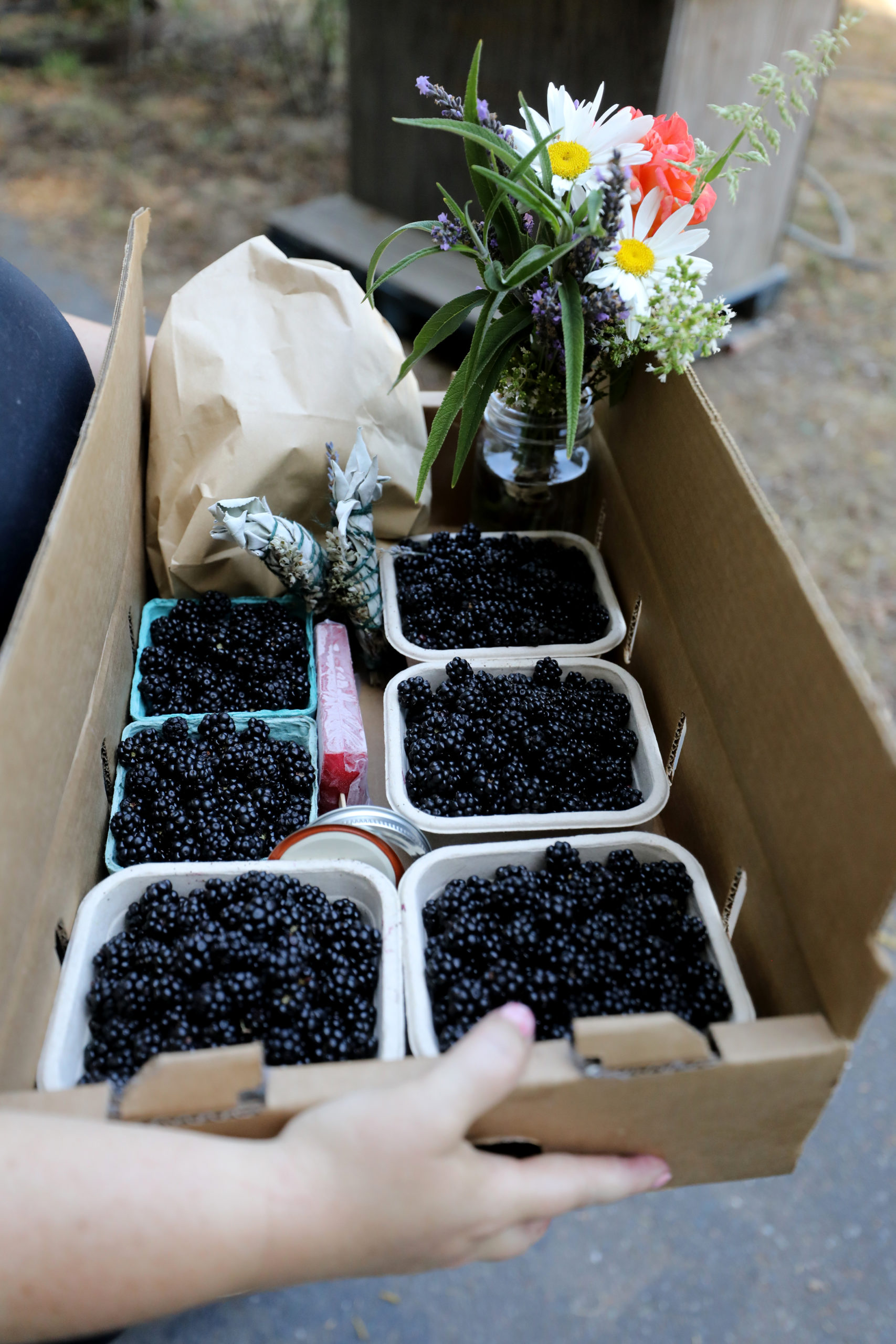
During this first year, Thomas and her collaborators are taking their time getting to know the land. They’re laying groundwork— building up the soil, installing water-catchment systems, and preparing for wildfire season. They’ve hosted their first community “U-Pick” days. And they’re exploring the best way to make their farm, its bounty, and its teachings available to those who often face barriers to access: Black people and people of color, youth, and seniors.
“There’s a sense of possibility and abundance here,” Thomas says, looking out over the rows of apple trees, heavy with fruit. “We want that for everyone, but for Black folks especially—to come home to a piece of land and feel like everything they need is taken care of.”
Families and individuals can visit EARTHseed on designated U-Pick days. Check earthseedfarm.org for offerings and availability.


